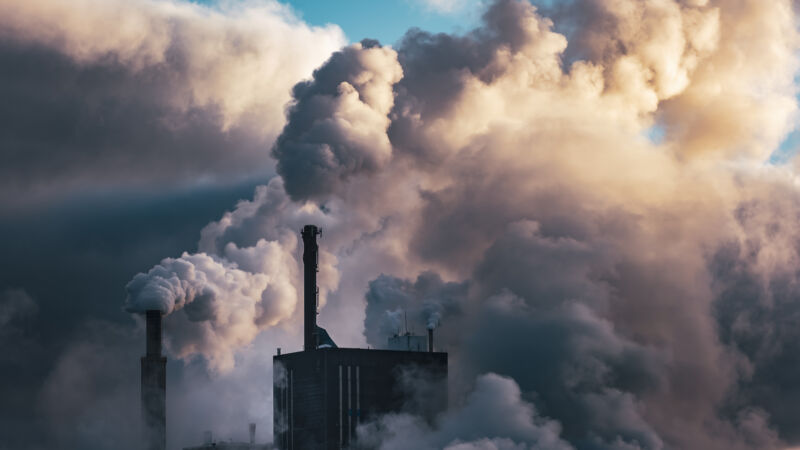
It's safe to say that the first two years of the pandemic left a lot of people exhausted and emotionally drained. A new study suggests that the exhaustion showed a reduced ability to care about other global problems.
The work relied on surveying all English-language Twitter for tweets related to climate change both before and during the pandemic. The researchers involved found that the number of climate-related tweets dropped roughly in proportion to rising COVID-19 cases and that the remaining tweets tended to be more optimistic than those in pre-pandemic times. Overall, this suggests that the pandemic taxed what some behavioral scientists call our "finite pool of worry."
In the deep end
The idea of a finite pool of worry is probably pretty intuitive to most of us. Worrying about something takes a toll on us emotionally, and that toll comes from a finite pool of emotional reserves. Once those reserves are depleted, we actually couldn't care less—we lose the ability to worry about things that we would otherwise find concerning. That's not to say that we'd say they're not worrying if we were asked—we just aren't likely to spontaneously expend attention on them.
At present, there's some disagreement regarding how real the finite pool of worry is, so it's best to consider it a hypothesis. But the pandemic would seem like the perfect opportunity to test it, as it created an entirely new category of worry at a specific point in time. And, in fact, a couple of studies looked at it.
Unfortunately, they produced contradictory results. One looked at Twitter conversations regarding another concerning subject, namely climate change, and found that their numbers dropped in some countries, but the effect was inconsistent. A second study looked at public polling data and saw no evidence of people running short of the ability to worry about climate change while the pandemic was raging.
So, two researchers at Stony Brook University, Oleg Smirnov and Pei-Hsun Hsieh, decided to go comprehensive: all 19 million English-language tweets between the first day of 2019 and the end of 2021 that included the term "climate change." They analyzed both the raw number of posts and subjected all 18 million to sentiment analysis to determine whether anything has changed since the onset of the pandemic.
Limited concern
At the annual level, the pandemic definitely sucked the air out of climate change worries. Tweets involving the topic dropped by more than 30 percent in the first year of the pandemic and stayed down the following year. During that time, however, daily Twitter use rose considerably; adjusting for this saw a 45 percent drop in the first year of the pandemic and a bit over half in the second.
This wasn't just because climate change was in the news less often during the pandemic. Smirnov and Hsieh found that the number of climate-related stories in newspapers and on TV dropped in the first year of the pandemic but rose to new highs in the second, so there doesn't seem to be a connection there. The same was true for severe climate-related events, such as wildfires and hurricanes; any changes in their frequency didn't line up with changes in climate tweets. (Carbon emissions also dropped in the pandemic's first year but rose in the second, so this wasn't likely to be a factor.)
Correlations showed up when the researchers looked at weekly measures of the pandemic, though. Whenever COVID-19 cases doubled, climate-related tweets dropped by about 5 percent. The doubling of COVID-19 deaths saw climate tweeting decline by over 7 percent. Put differently, in the US, every 1,000 additional COVID-19 cases were associated with 40 fewer climate-related tweets. There were some exceptions, like the weeks around presidential debates or the arrival of hurricanes, but a big boost in case counts could easily offset the arrival of a major hurricane.
One slight oddity here is that the number of likes received by climate tweets didn't show that pattern; they go up as the pandemic worsens. But again, the idea of a finite pool of worry doesn't mean people don't care about climate change; it just means that they don't have the resources to worry about it.
Another possible explanation, however, is that the nature of the tweets being liked is different. Using two different pieces of software that looked at the emotional content of the tweets, there were more positive thoughts expressed about the climate as the pandemic got worse. "Changes in the sentiment scores are consistent with the finite pool of worry hypothesis," the authors write. "As the threat of the pandemic increases, there is less worry about climate change and therefore, less negative and more positive sentiment."
Again, these are only English-language tweets, and a substantial majority of them originate in Australia, Canada, the UK, and the US. An earlier study found some differences between countries in a similar analysis, so it's not at all clear whether this is a global phenomenon. Still, it's worth following up to find out whether it is. Because anything that can affect public sentiment on a large scale is probably worth knowing about.
PNAS, 2022. DOI: 10.1073/pnas.2210988119 (About DOIs).
reader comments
80